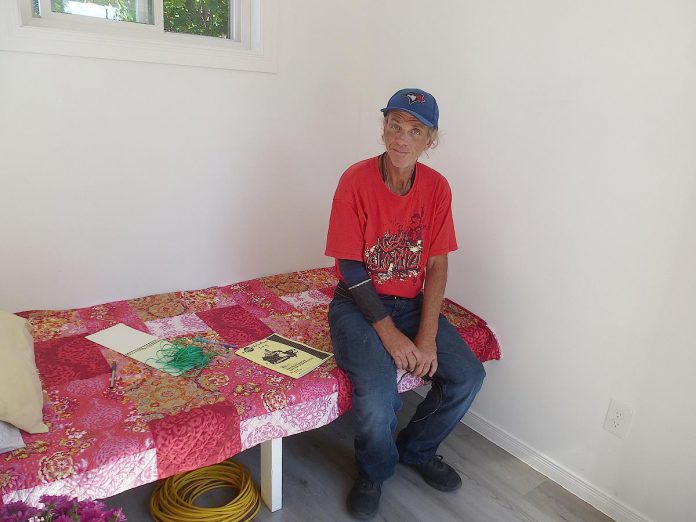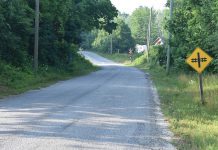
At its general committee meeting on Monday (August 26), Peterborough city council will consider a temporary use zoning by-law amendment that would allow Peterborough Action for Tiny Homes (PATH) to build 24 one-room sleeping cabins in the east end of the city.
Peterborough’s commissioner of infrastructure, planning and growth management is recommending in a report to council’s general committee that it pass a temporary use zoning by-law amendment — effective for up to three years — to allow for the creation of the sleeping cabin community, which will also contain wrap-around services.
“From a land use planning perspective, planning staff can support the applicant’s request for a temporary use by-law,” states the report. “However, (planning staff) acknowledge the complexities of introducing such a site into the community.”
The cabins would be constructed on the property at 385 Lansdowne Street East, the former home of the Peterborough Humane Society. Currently zoned as commercial, the property is now owned by Habitat for Humanity Peterborough and Kawartha Region (HHPKR), which has entered into a three-year lease agreement with PATH.
Located on the south side of Lansdowne Street east of Ashburnham Drive, the property is directly adjacent to Peterborough Pet Hospital to the west, Living Hope Church to the east, Willowcreek Plaza to the north, and Toromont Industries to the south.
PATH is a non-profit organization based in the City of Peterborough whose mission is to “provide homes to individuals experiencing chronic homelessness”. PATH advocates for transitional housing availability and affordability — including the use of non-traditional housing forms to provide as much housing as possible.

PATH announced in a media release earlier this month that it had completed an application for the temporary rezoning of the property, which it had submitted to the satisfaction of Peterborough’s planning department and will be presented to council’s general committee during Monday’s meeting.
“This is the first step in providing a valuable community resource to address homelessness in the City of Peterborough and will enable us to offer secure, heated sleeping cabins and supporting amenities for 24 unhoused individuals,” said Keith Dalton, PATH board member, in the release.
PATH noted “Peterborough is facing a humanitarian crisis that demands a community response. PATH is building on experiences from existing projects in Peterborough and across Ontario which includes both partnering with Elizabeth Fry Society and working with Better Street from Kitchener and Waterloo.”
“We are proud to be part of a community that is prepared to supplement the efforts of local government to meet an urgent need,” PATH noted. “Based on the potential of PATH to offer housing, our community has already provided the land (HHHPKR) and sufficient private funding to be operational for the first year of a three-year program.”
“We genuinely hope that council sees our efforts as critical to support their 10-year housing and homelessness plan, and aligned with the recently approved Community Safety and Well Being Plan.”
PATH noted a site development agreement consultation has been completed with city staff, Peterborough’s planning and building departments, and fire services “to establish the parameters for development and operation of the site.”
PDF: Excerpts from Report IPGPL24-026
Excerpts from Report IPGPL24-026
PATH said it has raised enough private funding to operate the first year of a three-year program, and will seek additional funding from the community and the provincial and federal governments to extend the service for three years.
While HHPKR has leased the property to PATH for three years, the city report notes HHPKR intends to engage with the city in consideration of a permanent housing proposal for the site, “but they are several years away from bringing a proposal forward.”
“In the interim, PATH is seeking the proposed temporary use through this application.”
Under Ontario’s Planning Act, a municipality can pass temporary use by-laws to permit the temporary use of land, buildings, or structures for any purpose that is otherwise prohibited by the zoning by-law. A temporary use by-law can be in effect to a maximum of three years, although it can be extended subject to processes outlined in the Planning Act, including holding another public meeting.
Items endorsed by general committee on August 26 will be considered for final approval during council’s regular meeting the following Tuesday (September 3), when public delegations will be heard.
If council votes to approve the temporary use by-law, the development would be subject to “site plan control,” which includes approval of an amended site plan application.

























